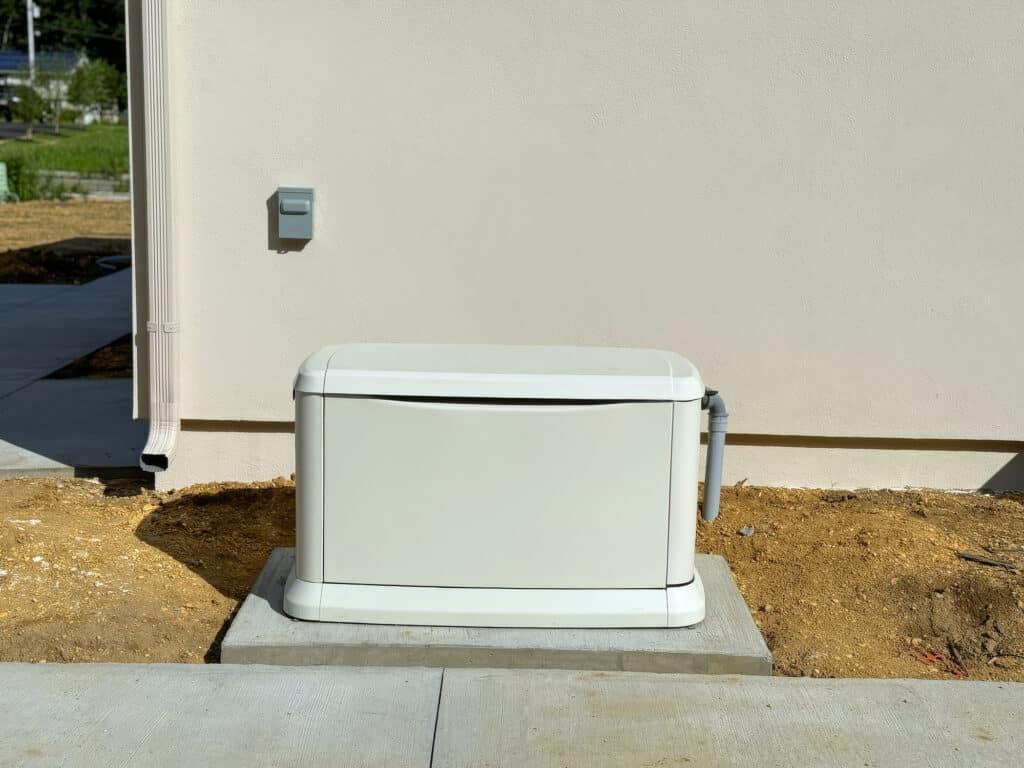Is Your Generator Running Weak? Here’s Why

In Quinby, SC, where seasonal storms are frequent, a robust generator is not just a convenience but a necessity. However, when your generator begins to run weakly, it could be a sign of several underlying issues that need immediate attention. Common problems include fuel issues, clogged filters, and worn spark plugs, all of which can significantly reduce the efficiency of your generator. Ignoring these warning signs not only risks the longevity of the device but also leaves you vulnerable during critical times of power outages.
A weak-running generator often indicates an imbalance in the electrical load, which can lead to more severe complications if not addressed promptly. Residents of Woodland Park, SC, understand the importance of maintaining their generators, especially given the unpredictable weather patterns. Regular maintenance checks can prevent most of these issues, ensuring that your generator operates at peak performance when you need it most.
The risks of overlooking a weak generator are substantial. In the event of a power outage, a failing generator could mean the difference between comfort and hardship. It’s crucial to recognize the early signs of trouble and seek professional help to diagnose and fix the issues. This proactive approach not only extends the life of your generator but also ensures it provides reliable service during emergencies.
For homeowners in regions prone to severe weather, the performance of your generator should never be left to chance. Regular diagnostics and timely repairs are key to maintaining your generator’s efficiency. By staying ahead of potential problems, you ensure that your backup power source is ready and capable, keeping your home powered during those critical moments when you need it most.
Understanding Generator Performance Issues
Understanding why a backup power system might be running weakly is crucial for residents in Quinby, SC, and Woodland Park, SC, where reliable electricity during outages is essential. Several factors can contribute to this issue, starting with fuel problems. Equipment running on stale or contaminated fuel can experience reduced efficiency and diminished power output. It’s important to regularly check fuel quality and replace it if necessary to ensure optimal performance.
Another common issue involves clogged filters. Over time, air and fuel filters can become blocked with debris, restricting flow and reducing effectiveness. Regular inspection and replacement of these filters can prevent such issues and help maintain consistent energy output. This simple maintenance step is often overlooked but can make a significant difference during critical moments.
Worn spark plugs are another common culprit behind weak performance. These components are essential for proper ignition and fuel combustion. When spark plugs degrade, the engine may run unevenly, lose power, or even fail to start. Replacing them as part of routine maintenance can restore much of the system’s original reliability and strength.
Finally, electrical load imbalances can also lead to subpar operation. This happens when the power demand exceeds the equipment’s rated capacity. Understanding these limits and managing the load accordingly helps prevent strain and extends the system’s lifespan. With regular upkeep and attention to these potential issues, your power source will remain ready to handle whatever the weather brings.

Photo from iStock – Credit: photovs
Common Causes of a Weak-Running Generator
In addition to fuel quality, clogged filters, and worn spark plugs, several other factors can contribute to weak backup power performance. Battery issues are a common culprit, often overlooked by homeowners in Quinby, SC. A weak or failing battery can prevent the unit from starting or cause it to run inefficiently. Regular testing and ensuring the battery stays charged can help keep your emergency power solution dependable.
Environmental conditions also play a significant role. For instance, extreme temperatures in Woodland Park, SC, can impact mechanical and electrical efficiency. Excessive heat may lead to overheating, while cold weather can thicken oil, making it harder for the engine to operate smoothly. Placing the unit in a well-ventilated space and using the right oil grade for the climate are key steps to maintaining optimal performance.
Another often-overlooked issue is the overall age and condition of the equipment. Over time, internal components wear down, and connections can loosen, leading to a gradual decline in power output. Conducting regular inspections helps identify any worn or faulty parts that may need attention, ensuring every element works as intended to deliver reliable energy.
Lastly, improper installation can result in a range of operational problems. If not installed correctly, these systems may experience electrical irregularities, fuel flow disruptions, or ventilation issues. It’s essential to rely on professionals for setup and periodic checks to ensure everything meets safety standards and works seamlessly. Correct installation and proactive care not only enhance reliability but also ensure your backup system performs when it matters most.
The Impact of Fuel Quality on Generator Efficiency
Fuel quality plays a pivotal role in the efficiency and longevity of generators, particularly in areas like Quinby, SC, where reliable backup power is crucial during seasonal storms. Using stale or contaminated fuel can lead to significant reductions in a generator’s output and efficiency. It’s essential to use fresh, high-quality fuel and to store it properly to prevent degradation over time. This ensures that the generator can produce the necessary power during emergencies.
In regions like Woodland Park, SC, where environmental conditions can vary widely, the impact of fuel quality becomes even more pronounced. Low-quality fuel can cause the build-up of deposits within the engine, leading to clogged fuel injectors and reduced efficiency. This not only diminishes the generator’s performance but can also lead to increased maintenance costs and potential breakdowns during critical times.
To maintain optimal performance, generator owners should regularly check their fuel supply for signs of contamination such as water or debris. This is especially important after long periods of inactivity when fuel can degrade. Implementing a routine maintenance schedule that includes fuel inspection can help detect issues early, preventing them from escalating into more significant problems that could impair the generator’s function.
Lastly, educating yourself about the types of fuel appropriate for your generator and the potential risks associated with poor fuel quality is invaluable. For instance, diesel generators require different fuel specifications compared to gasoline-powered units. Understanding these requirements can help you make informed decisions about fuel purchases and storage, ensuring your generator remains efficient and ready to operate smoothly whenever it’s needed. This proactive approach is essential for keeping your home powered and secure during unexpected power outages.
How Clogged Filters Affect Your Generator
Clogged filters are a common yet critical issue that can severely impair the performance of backup power systems, particularly in areas like Quinby, SC, where such equipment is essential for weathering seasonal storms. Air and fuel filters play a vital role in keeping internal components clean. When these filters become blocked with debris, airflow and fuel delivery to the engine are restricted, resulting in reduced efficiency and potential malfunctions. Regular inspection and timely replacement of these filters can greatly improve both functionality and longevity.
In places like Woodland Park, SC, where environmental debris tends to be more prevalent, the likelihood of filter blockage increases. The air filter, which prevents particulate matter from reaching the engine, can quickly become saturated if not checked consistently. This blockage limits the airflow necessary for proper combustion, leading to diminished power and overall inefficiency. Likewise, a clogged fuel filter can restrict fuel delivery, causing the engine to run lean, an issue that may result in overheating and serious damage over time.
Ignoring this kind of maintenance can have significant consequences, especially during critical times like power outages. A system running with a saturated air filter may show symptoms such as decreased output and increased fuel use. This not only wastes resources but also places undue strain on the engine, accelerating wear. Fuel filter issues may cause the unit to struggle when starting or to run erratically, both of which can be disastrous when consistent power is needed most.
To ensure peak reliability, incorporate regular filter checks and replacements into your maintenance schedule. This proactive strategy helps maintain energy efficiency while guarding against sudden equipment failure. For residents who depend on backup systems during outages, staying ahead of filter issues is a smart and necessary step. Clean, unobstructed filters ensure that your equipment remains dependable and ready to respond when it’s needed most.
The Role of Spark Plugs in Generator Function
Spark plugs are crucial components in ensuring that a generator operates efficiently, particularly in areas like Quinby, SC, where reliable power is essential during seasonal storms. These small yet vital parts are responsible for igniting the air-fuel mixture within the engine, allowing it to run smoothly and effectively. When spark plugs become worn or fouled, they can significantly impair the generator’s performance, leading to issues such as misfiring, reduced power, and increased fuel consumption.
In environments like Woodland Park, SC, where environmental conditions can vary, the maintenance of spark plugs becomes even more critical. Factors such as humidity and temperature changes can affect their efficiency. A worn-out spark plug might struggle to provide a consistent spark, which is essential for optimal combustion. This inconsistency can cause the generator to run erratically, reducing its reliability when it’s needed most.
The symptoms of failing spark plugs are often noticeable and should prompt immediate inspection. These include difficulty starting the generator, a noticeable drop in power output, and an increase in fuel consumption. Such signs indicate that the spark plugs may be degraded or coated with carbon build-up, which insulates the electrode and prevents proper sparking.
To maintain the reliability of your generator, it’s recommended to include spark plug inspection and replacement in your regular maintenance routine. This ensures that each spark plug is functioning correctly and can handle the demands placed on it during power outages. By keeping your generator’s spark plugs in good condition, you ensure that it remains a dependable source of energy, ready to handle the challenges posed by unexpected weather disruptions.
Electrical Load Imbalances and Your Generator
Electrical load imbalances are a significant factor that can lead to weak performance in backup power systems, especially in areas like Quinby, SC, where dependable energy is essential during storms. An imbalance occurs when the demand for electricity exceeds the system’s output capacity, forcing the equipment to operate under stress. This not only reduces efficiency but can also shorten the lifespan of the unit. Understanding and managing the load is key to maintaining long-term reliability.
In Woodland Park, SC, residents often encounter challenges in balancing electrical demands, particularly during extreme weather. When the system is overloaded, overheating may occur, which could lead to malfunctions or complete shutdown. To prevent this, it’s important to calculate the combined wattage of appliances and devices intended for simultaneous use. Doing so helps keep operations within safe thresholds and preserves the integrity of the equipment.
A frequent oversight is underestimating the startup surge of certain household devices. Items such as refrigerators, HVAC units, and water pumps typically draw more power at startup than during normal operation. If this surge isn’t factored into the overall load estimate, it can lead to an unexpected strain. One effective solution is to choose equipment with a higher capacity than the projected average load or to stagger the use of high-demand appliances, avoiding simultaneous peak usage.
Monitoring and adjusting electrical consumption regularly can greatly enhance performance. Simple practices, such as using energy-efficient devices and turning off unnecessary electronics, help reduce overall demand. These strategies not only ensure optimal operation during outages but also extend the life and efficiency of your backup power solution, making it a dependable resource when you need it most.
The Importance of Regular Generator Maintenance
Regular upkeep of your backup power system isn’t just a recommendation, it’s a necessity, especially in places like Quinby, SC, where dependable electricity during storm seasons is crucial. Skipping routine checks can lead to reduced performance or even complete failure when you need power the most. Consistent maintenance helps ensure that every component is functioning correctly and can uncover minor issues before they escalate into major problems, keeping the entire system in peak condition.
For homeowners in Woodland Park, SC, the benefits of scheduled care go beyond reliability. It can significantly increase the operational lifespan of the unit by minimizing wear and tear and improving overall efficiency. This includes essential tasks like changing the oil, monitoring coolant levels, and inspecting electrical connections to ensure they’re clean, secure, and free of corrosion. These simple, preventative measures help avoid many of the common failures that occur during power outages.
In addition, professional servicing often involves a thorough inspection of the control panel and internal systems. This is especially valuable, as trained technicians can detect subtle signs of wear or malfunction that may go unnoticed by the average homeowner. Firmware updates and system calibrations are also part of these visits, optimizing the setup to perform reliably, an important factor when facing unpredictable South Carolina weather.
Finally, sticking to a regular service schedule can lead to long-term savings by reducing the risk of costly emergency repairs or full replacements. A well-maintained system also burns fuel more efficiently and minimizes the chances of unexpected downtime, ensuring your household stays powered when the grid goes down. For residents of Quinby and Woodland Park, SC, investing in consistent upkeep is a smart, proactive step toward greater security and peace of mind during extreme weather events.
How to Diagnose and Fix a Weak-Running Generator
Diagnosing weak performance in a backup power system starts with a systematic approach to uncover the underlying issue. In Quinby, SC, where dependable electricity is vital, beginning with the most basic checks can save both time and effort. Start by verifying that there’s adequate fuel, oil, and coolant. These simple assessments often expose easy-to-fix problems, like low fluid levels or contaminated fuel, that can greatly affect performance.
Next, take a close look at the air and fuel filters. Clogged filters are a frequent cause of reduced efficiency, particularly in places like Woodland Park, SC, where airborne debris can accumulate quickly. Dirty filters restrict the clean flow of air and fuel to the engine, leading to poor combustion and power loss. Replacing them when needed can quickly restore functionality and is a key step in routine diagnostics.
When basic troubleshooting doesn’t resolve the issue, it’s time to explore potential electrical repair or ignition-related problems. Tools such as a multimeter or spark plug tester are extremely useful for identifying whether electrical output is stable or if ignition components are compromised. Testing the spark plugs and checking voltage levels can reveal problems that aren’t immediately visible but may be causing the system to run inefficiently.
If these efforts still don’t resolve the issue, it’s advisable to call in a professional technician. These systems are intricate, and some problems demand specialized knowledge and diagnostic tools. An expert can carry out a full assessment, including testing load capacity and inspecting internal parts for signs of wear or failure. Scheduling regular professional service ensures the equipment stays in optimal working order, ready to deliver reliable energy whenever it’s needed most.

Photo from iStock – Credit: Maks_Lab
Frequently Asked Questions
What are common signs that your generator is running weak?
Common signs that your generator is running weak include frequent power fluctuations, reduced output, and unusual noises during operation. If you notice that it struggles to start or fails to maintain consistent power, these could be indicators of underlying issues. Often, this weakness is due to clogged air filters, old spark plugs, or fuel problems. Addressing these signs promptly can prevent more serious damage and ensure your generator remains reliable, especially during critical times.
How can weather conditions affect your generator’s performance?
Weather conditions significantly impact your generator’s performance, especially in areas like Quinby, SC, where seasonal storms are common. High humidity can lead to moisture accumulation within the generator, potentially causing short circuits or corrosion. Extreme cold or heat can also affect the efficiency of the battery and the viscosity of the fuel, leading to starting problems or inconsistent power output. To ensure optimal performance, it’s crucial to regularly check and maintain your generator according to the manufacturer’s recommendations and local weather forecasts.
What maintenance practices can prevent a generator from running weak?
Regular maintenance is key to preventing your generator from running weak, ensuring it operates efficiently when you need it most. Start by checking and replacing the air filter, oil, and spark plugs according to the manufacturer’s schedule to avoid buildup that can impair performance. It’s also crucial to run your generator periodically to ensure all components remain in good working condition and to detect any issues early. Additionally, keeping the generator clean and free from debris will help prevent overheating and maintain optimal functionality.
Can fuel quality impact generator efficiency and power output?
Yes, fuel quality can significantly impact both the efficiency and power output of your generator. Using stale or contaminated fuel can lead to inefficient combustion, which reduces the generator’s power output and can cause damage over time. High-quality, clean fuel ensures that the generator runs smoothly and delivers maximum power. To avoid these issues, always use fresh fuel and consider adding a stabilizer if the generator will not be used for extended periods. Regularly checking and replacing old fuel can prevent performance problems and extend the life of your generator.
What should you check first if your generator starts running weak?
If your generator starts running weak, the first thing to check is the air filter, as it’s often the culprit for such issues. A clogged or dirty filter can restrict airflow, significantly diminishing the generator’s efficiency and power output. Next, examine the fuel quality and level to ensure there are no blockages or contamination that could be affecting performance. Additionally, checking the spark plugs for wear and ensuring they are functioning correctly can help diagnose and resolve the problem quickly, maintaining your generator’s reliability.
















